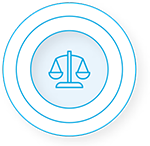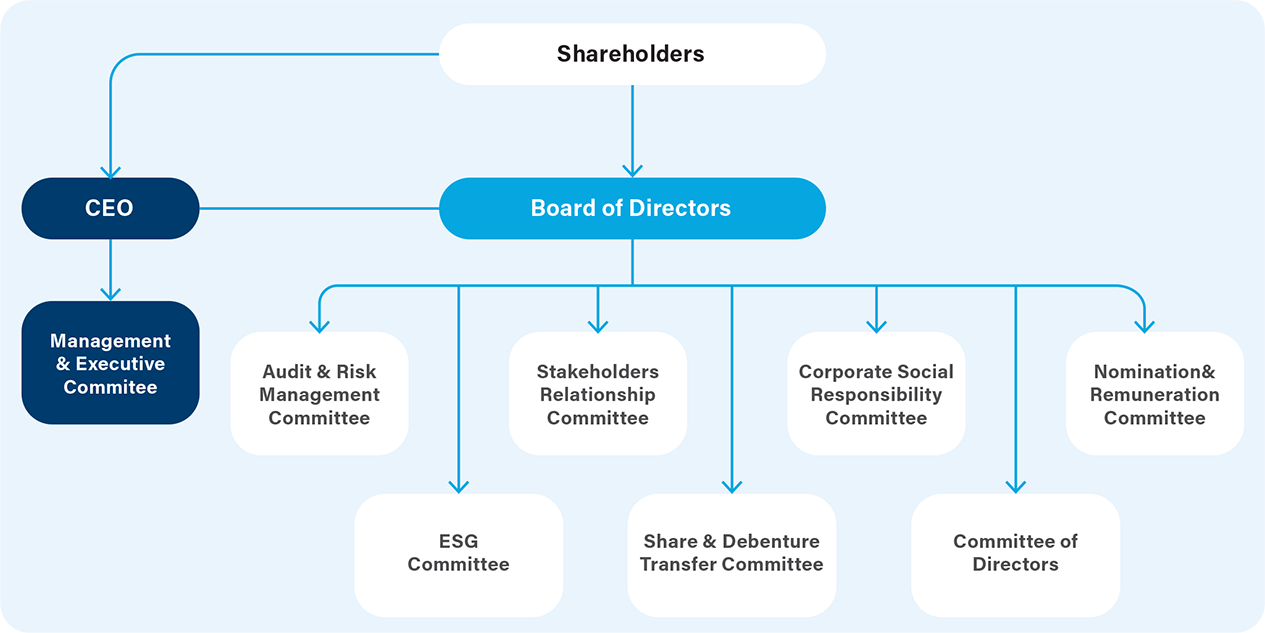Adhere to global business standards of corporate governance
We believe sound corporate governance is the bedrock of a sustainable and commercially successful business. It helps us meet our strategic goals responsibly and transparently, while being accountable to our stakeholders. A robust governance structure upholds global best practices, preserves the interests of stakeholders and ensures the integrity of the information that goes out to them.
Key material issues
Compliance to government regulations
Ethical business practices
Governance for sustainability
Risk management
SDGs impacted


Sub-goals8.7: Take immediate and effective measures to eradicate forced
labour, end modern slavery and human trafficking and secure the
prohibition and elimination of the worst forms of child labour, including
recruitment and use of child soldiers, and by 2025 end child labour in
all its forms
16.7: Develop effective, accountable and transparent institutions at
all levels









